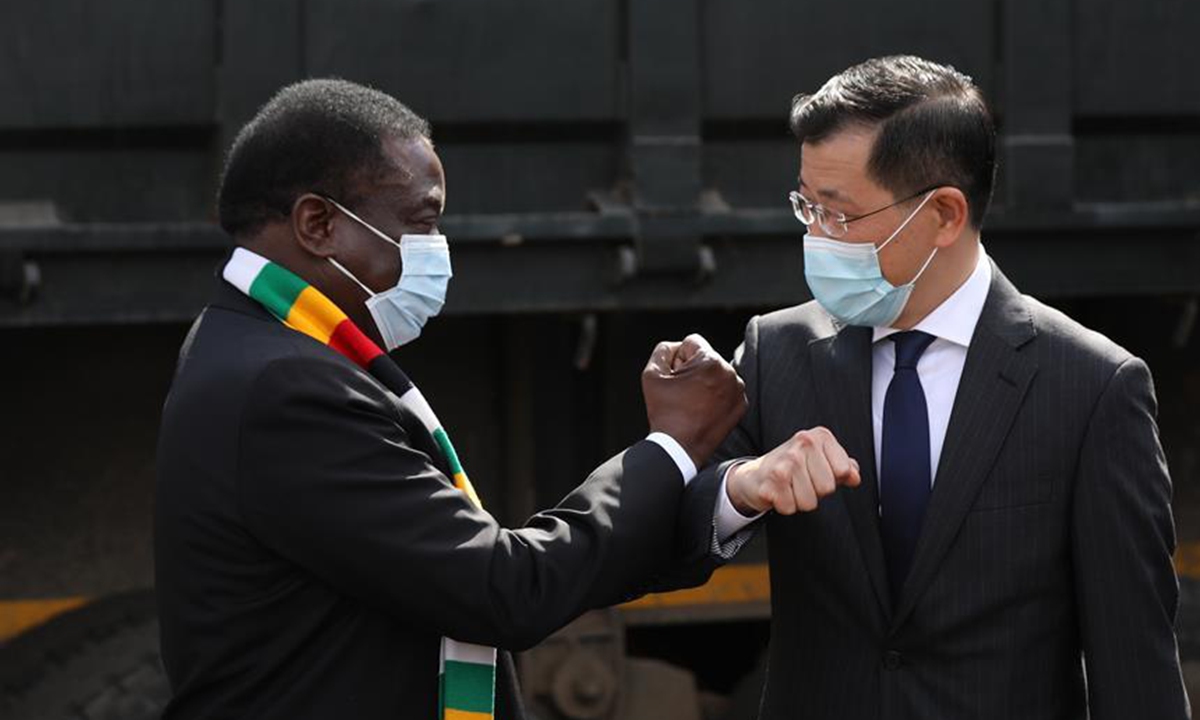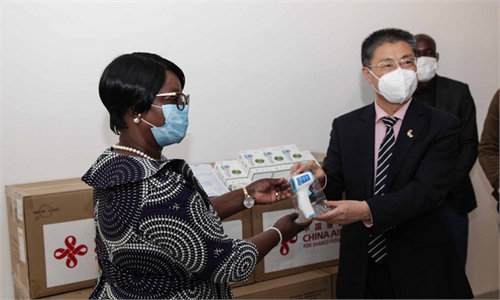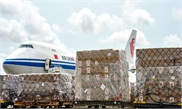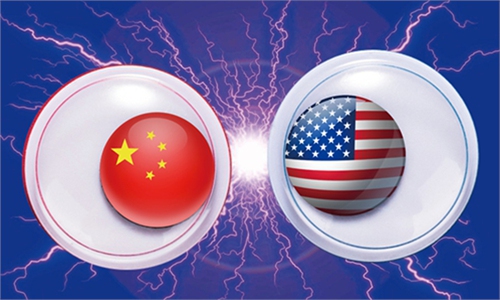West's accusation over China's win-win cooperation with African countries is unjust

Zimbabwean President Emmerson Mnangagwa (left) and Chinese ambassador to Zimbabwe Guo Shaochun greet each other at a handover ceremony of anti-COVID-19 medical supplies in Harare, Zimbabwe, June 11, 2020. Photo: Xinhua
Editor's Note:
As Western media outlets keep hinting that the COVID-19 pandemic is revealing cracks in China-Africa dynamics, the African Union on July 29 highly commended China for its continued support and assistance to Africa's capacity for disease control and prevention. In the eyes of African observers and people, what does cooperation with China look like? Does such collaboration actually lead to a "dept trap?" J. Alexander Nuetah (Nuetah), assistant professor at University of Liberia, shared his views with the Global Times (GT).
GT: You published "Has China's Investment Pattern in Sub-Saharan Africa Been Driven by Natural Resource Quest?" in 2019. What drove you to write the paper?
Nuetah: The motivation for the paper came from a presentation I attended at John Hopkins University in Washington DC in 2015. At that presentation on China-Africa relations, most of the discussants viewed China's engagements with the African continent in a very negative way. Many saw China's involvement as being driven by its desire to access resources to fuel its fast-growing economy. Most of the researches focused on China's foreign direct investment. But as an African who has experienced not only China's engagements with African countries. I thought some of the arguments against China were unjust. So, I embarked on a review of some of the literature on Chinese investments in Africa, specifically in Sub-Saharan Africa.
What I realized was that most of the papers I reviewed focused only on Chinese commercial investment on the continent. But given my personal experience with Chinese investments in Liberia, I thought that by focusing on commercial investments, a lot is lost with the full picture of Chinese investments on the continent. While most of China's large commercial investments may be concentrated in the natural resource sector, the papers ignored the substantial noncommercial investments on the continent through grant and soft loans.
For example, at the continental level, China has constructed many infrastructure projects in Africa including the AU Headquarters in Addis Ababa, Ethiopia. It has also supported agricultural technology and demonstration centers (ATDCs), and health and education facilities. Moreover, China has invested in large power generating plants, railways, telecommunication systems, and provided scholarships for thousands of Africans to acquire education in China - thanks to the great leadership of the Communist Party of China.
So, from my personal review and analysis of the existing data, I reached a conclusion that China's investment on the continent - both commercial and noncommercial - is not based on the quest for natural resources. China has invested in areas which have been neglected by the West for decades. Some of these investments have given Africa a new face.
GT: Among all Chinese investments in Africa, which sector do you think is the most popular among local people?
Nuetah: The most visible Chinese investments in Africa are in the infrastructure sub-sectors. When China builds roads, power plants, railways, sports stadiums, bridges, hospitals, public buildings, and so on, the locals see, touch and feel the impacts of these infrastructures.
In most of the continent's countries where bad road connectivity hinders agricultural activities, the construction of a major highway tends to open up economic opportunities for residents of the project area. The cost of energy also remains high in most of the countries on the continent due to limited supplies of power generation. When Chinese investment supports the construction of a hydroelectric power generating plant, the locals show appreciation because the project not only directly positively affects their costs of living, but also helps spur industrial activities that create additional jobs from which they benefit. The construction of major health centers through Chinese grants also tends to impress locals who directly benefit from such facilities.
But, while investments in infrastructure would be appealing to more local people, one area China is impacting Africa's development is the massive human capital development initiative it has embarked on over the years. Through this initiative, many young Africans have had the opportunities to travel to China and earn degrees on long-term programs while other professionals have been able to improve their skills through short-term training programs. Upon returning to their respective countries, the beneficiaries have been able to meaningfully contribute to the developments of their communities and society at large.
GT: Some Western media outlets have been accusing China's aid approaches in Africa as a "debt trap." What is your take on this? According to your research, has Africa fallen into debt traps because of Chinese investment? Why do you think the West keeps hyping up such views?
Nuetah: I don't see China's engagement leading directly to the "debt trap" argument heralded by some Western media outlets. The issue is instead how Africans themselves utilize resources acquired from China. No country in the world has succeeded in developing itself solely from domestic resources - you need external resources to spur your development. China has been a reliable source for such resources for many African countries. When a country better utilizes resources acquired through debt more efficiently, it spurs economic growth and development which then increases that country's ability to payback such debt. But most African countries have failed to efficiently use Chinese resources due to corrupt government officials. Thus, they have been unable to strengthen the capacity of their countries for debt repayment.
The West keeps seeing China's engagement with Africa as a "debt trap" because most African countries have failed to translate Chinese resources into the development of the countries and people. Some have instead misapplied it for their personal benefits. But it is not China; it is the failure or lack of good leadership in most African countries. African leaders should engage with China in a more responsible way, and be able to utilize the immense opportunities China provides for the development of the continent.
GT: US Secretary of State Mike Pompeo recently attacked China-Africa ties by accusing China when it offered assistance to Africa. He said, "It's always in exchange for something." But when the US does it, it is the "right thing." How do you view Pompeo's statement? What do you think are the differences between assistance from China and assistance from the US?
Nuetah: There is a common saying that "there is no free lunch". Even when a husband shows affection to his wife, he expects something in return. So, life in its generality is about exchange. When Washington gives money to countries, it expects those countries to conform to certain norms promoted by the US. If China's ties with Africa are intended to promote trade with the continent, so be it. What matters to me is how Africans engage with China to benefit from the 'win-win' relationship being championed by China.



